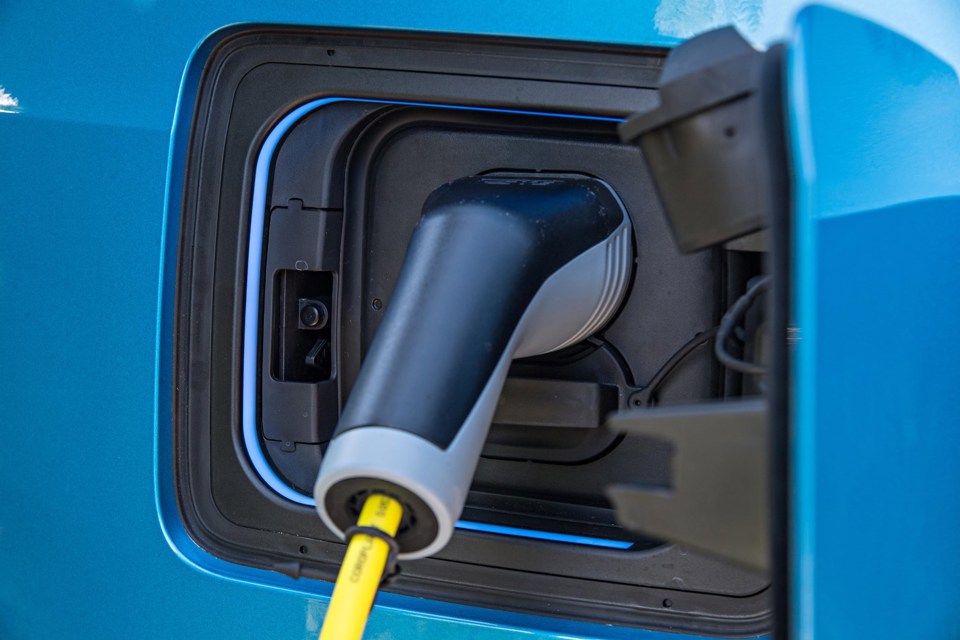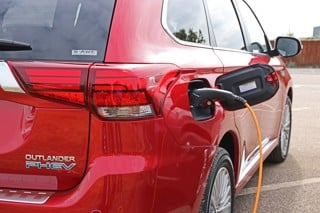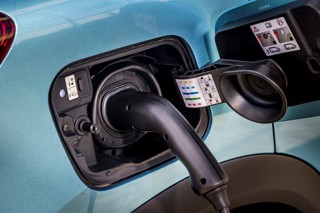An alliance of leading fleet organisations is urging the Government to maintain confidence in the battery electric vehicle (BEV) market by providing more clarity on future tax rates.
The British Vehicle Rental and Leasing Association (BVRLA), the Association of Fleet Professionals (AFP) and Fleet News are asking the Chancellor to provide more foresight on the trajectory for company car benefit-in-kind (BIK) tax in his upcoming Budget.
"BEV adopters are getting increasingly nervous of a sudden cliff-edge increase in BIK rates in 2025/6," Gerry Keaney, BVRLA
Low tax rates and the security of a five-year roadmap on future charges have seen the BIK regime become the single biggest driver of zero emission vehicle uptake in the UK.
It has driven a surge in decarbonisation within the company car and salary sacrifice markets, where BEVs already make up 8% and 22% of the total fleet, respectively, according to the BVRLA.
New BEV volumes are much higher, suggesting these sectors have a great chance of meeting the Government’s 2030 target for phasing out sales of petrol and diesel cars.
However, the fleet industry is warning that this momentum is now at risk, with many fleets and drivers being forced to consider lease contracts for BEVs without knowing the tax they will be charged over the full duration of the agreement.
“The Government has made it clear that it is looking to shore-up motoring tax revenues as the shift to zero-emission motoring accelerates,” said BVRLA chief executive, Gerry Keaney.
“As a result, potential BEV adopters are getting increasingly nervous of a sudden cliff-edge increase in BIK rates in 2025/6, which could shatter the affordability of electric cars."
The Government has committed to keeping BIK tax rates low for electric company cars but only until March 2025. The pledge was included in its roadmap to ending the sale of new diesel cars and vans by 2030 and hybrid cars and vans by 2035.
Keaney continued: “The Government must provide more certainty by publishing rates for 2025/6 and giving a clear roadmap on how charges could rise in the run up to the phase-out deadline.”
AFP chair Paul Hollick added: “Our members are clear. We are on a knife-edge with EV adoption in the corporate fleet sector and require confirmation from Government on the benefit in kind and motoring tax conditions for the second half of the decade urgently.
"There is an extremely high level of confidence by our members that we can electrify our fleets but, with employees now locking in leases into the tax years 2025/26, there is a concern we are walking into the unknown – by quick Government action, all concern and uncertainty can be removed.”
The BVRLA, AFP and Fleet News have three clear BIK asks for the Chancellor ahead of his upcoming Budget:
- Publish 2025/26 BiK rates as a minimum. Every extra year of foresight builds market confidence
- Pledge that BEV BiK rates will not rise above 10% before 2031/32
- Commit to a BEV BiK escalator that increases rates by less than 3% a year
They are urging fleet operators, employers and drivers to support their campaign by sending their own Budget submission to the Chancellor or writing to their local MP asking for their support.
Employers and employees: download a sample letter to send to the Chancellor
Employers: download a sample letter to send to their MP
Employees: download a sample letter to send to their MP
























The Engineer - 22/09/2021 16:49
I backed away from an EV this time because the way energy costs are rising (my rate is going from 12p to 20p per kwh this month alone due the collapse of my supplier) the current EV AFR is no longer sufficient and rapidly being left behind by the meteoric ongoing rises, with no guarantee its going to be increased. My work pattern would make some on the road recharging necessary, the AFR is less than a 7th of the cost of that so I would be drastically out of pocket each time. Some days I would need a very long (real world, on a cold day, heavy traffic, not WLTP) range EV but then with such a battery capacity it wouldn't charge fully overnight on a domestic charger, there just isn't enough power. I am just glad I will have retired and won't face the problems by the time the government starts banning petrol vehicles. I appreciate this is not the case for very many people, but one size doesn't fit all, some of us it just doesn't work for.